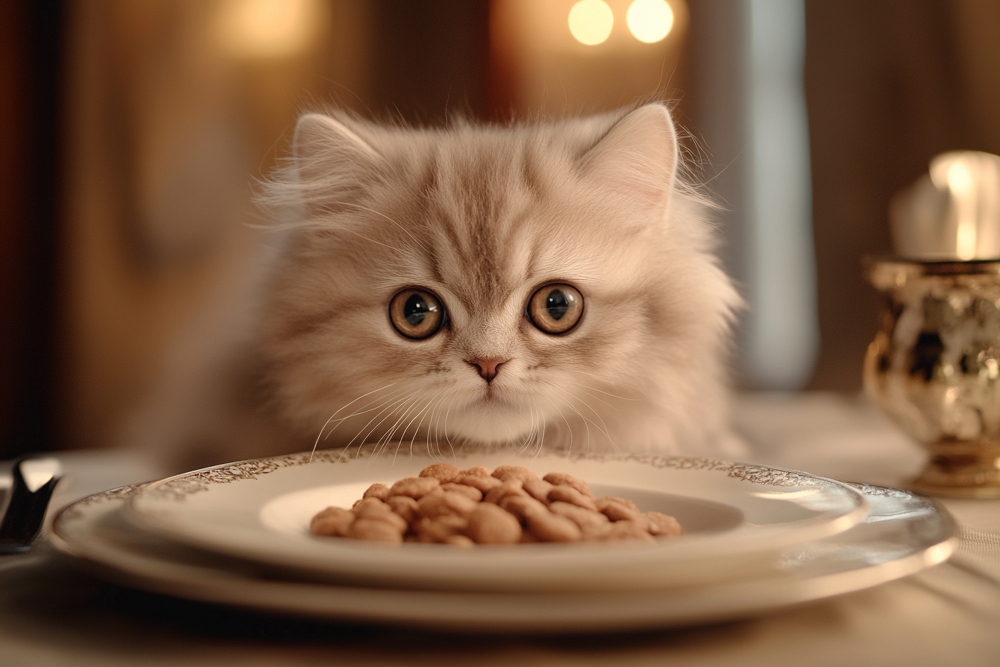5. Monitoring and Adjusting Your Cat’s Diet
The final tip for maintaining a balanced cat diet is to continuously monitor your cat’s health and make necessary adjustments. Regular vet visits are crucial for tracking your cat’s weight, dental health, and overall well-being.
Recognizing Signs of Nutritional Deficiency
Despite your best efforts, your cat might still develop nutritional deficiencies if their diet isn’t properly balanced. Watch for signs such as:
- Dull or Dry Coat: A healthy cat’s coat should be shiny and smooth. If your cat’s fur appears dull or feels dry, it may indicate a lack of essential fatty acids or other nutrients.
- Lethargy: While cats enjoy their naps, excessive lethargy or a noticeable decrease in activity can be a sign of nutritional deficiencies or other health issues.
- Weight Changes: Sudden weight gain or loss can indicate an imbalance in your cat’s diet or an underlying health problem. Regularly monitor your cat’s weight and body condition to ensure they are maintaining a healthy weight.
- Digestive Issues: Frequent vomiting, diarrhea, or constipation can be related to dietary problems. If your cat experiences digestive issues, consult with your vet to adjust their diet accordingly.
Adjusting with Age
As cats age, their nutritional needs can change. Senior cats may require fewer calories but more protein to maintain muscle mass. Specialized diets formulated for older cats can support joint health, kidney function, and overall well-being. Consult your vet to determine if your aging cat would benefit from a diet tailored to their specific needs.
Conclusion
Providing a balanced cat diet is essential for your feline friend’s long-term health and happiness. By understanding their nutritional needs, choosing the right type of food, practicing portion control, incorporating variety, and monitoring their health, you can ensure your cat receives optimal nutrition. Tailoring their diet to their unique needs and being willing to make adjustments as necessary will support their well-being and help them lead a healthy, happy life for years to come.
A balanced cat diet involves more than just feeding your cat; it encompasses understanding their specific nutritional needs, selecting appropriate food types, and maintaining a consistent feeding routine. By applying these tips and staying attuned to your cat’s health, you can provide a diet that supports their overall health and well-being.































1 Comment